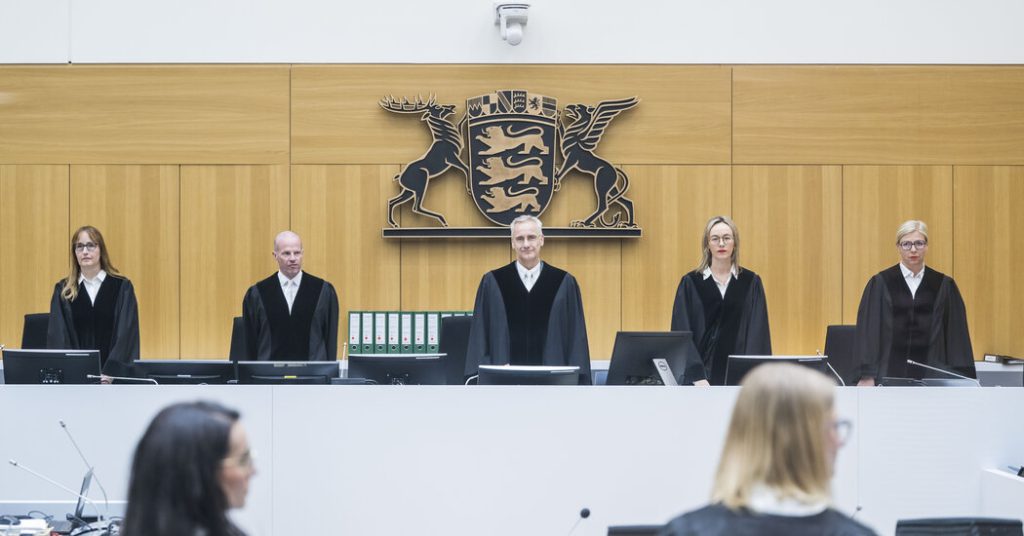The trial of Prince Heinrich XIII of Reuss and eight others accused of plotting to violently overthrow the German government is set to begin in Frankfurt. The group, known as the “United Patriots,” believed in a conspiracy theory involving a network of underground military bases controlled by illegitimate politicians. They also believed in the existence of a secret alliance with foreign intelligence services to help them overthrow the government. The accused are part of the Reichsbürger movement, which believes the modern German state is illegitimate.
The accused are facing charges of founding a terrorist group and planning to install Prince Heinrich XIII as the German chancellor after a successful coup. The group, which included retired army officers, a police officer, and a former far-right lawmaker, had stockpiled weapons and ammunition in preparation for their insurrection. The group’s plan involved entering the Parliament, capturing top politicians, and establishing a new leadership council. The defendants adhered to a worldview based on QAnon-type mythology and far-right historical revisionism.
The plotters were organized and meticulous in their preparations, holding regular meetings in an old hunting castle belonging to the prince. One of the accused, a former judge, used her security pass to gain access to the Reichstag, where the group conducted reconnaissance for the initial attack. The prosecutors have gathered evidence such as signed oaths of secrecy and chat exchanges to build their case against the accused. The extent of the organization behind the coup attempt has been crucial in helping investigators understand the scope of the conspiracy.
The trial in Frankfurt is expected to shed light on the state of preparations for the coup and the alleged terrorist group’s connections to Russia. The accused face charges of terrorism and planning to overthrow the government by force. The trial is part of a larger crackdown on the Reichsbürger movement, which has grown increasingly radical in recent years. The authorities believe there are at least 23,000 members of the movement, with some forming militant factions intent on undermining democracy.
The court case is one of the most complex since the trials of Auschwitz concentration camp commanders in the 1960s. In addition to the Frankfurt trial, two other proceedings related to the plot are ongoing in Stuttgart and Munich. The core group of alleged plotters was too large to fit into a single courtroom, highlighting the scale of the conspiracy. The trials are expected to last for years before verdicts are reached, given the complexity and scope of the case.
Though the beliefs of the group may seem idiosyncratic, the authorities consider them a real danger due to the amount of weaponry and ammunition they had stockpiled. The defendants include men and women from various backgrounds, including military officers and a former lawmaker. The prince, though not the founder of the movement, played a crucial role early on due to his family’s historical ties to the German monarchy. The trial is expected to provide insights into the organization and planning behind the coup attempt and the radicalization of the Reichsbürger movement.


